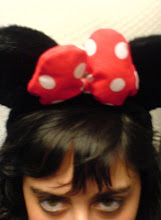Eternal Mash, Catherine van Campen (2007)
Ruurd Walecht's interest in historical crops began when he was very young. He started a life-long crusade to protect, preserve and maintain them. This Dutch Don Quixote of rare vegetables built an incredible collection of hundreds of crops that were on the brink of extinction. A few years ago, Ruurd suddenly moved to Sweden leaving his colourful mix of helpers behind. Eternal Mash tells the story of this master horiculturist and his Green Ark. Because his life's work is very important to all of us...
Supermarkets are lined with shelve upon shelve of products wrapped in colorful packaging and plastic foil. 50 types of butter stand in line, like girls in a beauty pageant, trying to lure eager shoppers to fall for their charms.
However, the vegetable department seems barren in comparison. You can almost imagine tumbleweeds rolling by as, amidst of all the color and splendor of the canned and packaged goods, you enter the deserted vegetable area.
Vegetables lie in puny piles in what is often the smallest section of the supermarket. Here you can’t find a vast array to choose from. No limitless rows of produce. No sexy luring. Only one type of broccoli, one type of cucumber and, if you’re lucky, 3 types of lettuce. (True; you can now decide whether you want to buy them sliced or whole, but that’s got less to do with choice and more with inner-city laziness.)
All this is due to international legislation that has permitted the influx of countless artificial and pre-packaged products, but has determined that only one species of cucumber is to be produced for consumption, ruling out all other variations of the vegetable. Consequently 75% of what used to be farming produce has irretrievably disappeared.
Instead we have opted to create genetically manipulated vegetables and fruits, shaping and re-shaping them until they grow faster, and look uniform and perfect in our eyes. No wonder lemons (normally yellow for only a few months a year) get a useless and slightly toxic coat of industrial wax to make them shine. Uniquely shaped fruits and vegetables are out of grace.
Produce is now grown under strict, sterile conditions in carefully monitored boxes and this is visible in the food we eat. Tomatoes might look beautiful, but inside they are filled with water and lack the taste that drew us to them in the first place. Vegetables have turned into Mediterranean coastal towns; once visited by foreigners for their uniqueness, and now built to the rim with high-rise uniform hotels, defacing and standardizing them. Gone are strong flavor, unique shape and size variety.
In Eternal Mash the maker addresses this very problem. For years Ruurd Walrecht had seen how vegetables were changing and being formed into glorified Xerox copies of their original ancestors, or disappeared altogether. So he started a project of collecting as many variations of plants, in their original, un-edited form, to preserve for posterity in a carefully kept field somewhere in the north of the Netherlands. Unfortunately, it seemed to be for def ears. As he fought to make government organizations see the purpose of his project, he only received support from a few fellow concerned citizens. So great was the non-support for his project, that after fighting it for some years he couldn’t stand the pressure anymore and left. Packing his belongings and moving to Sweden. Leaving behind disconcerted helpers, who’s life he touched, and an invaluable collection of seeds and beans. As with every such project, its value is only seen once it seizes to exist. And in this case it was no different. His seeds have been stored in so called gene banks, in order for the species to survive the rigorous regime of the uniformisation.
But this survival is as sterile as the conditions vegetables are grown in these days. Packaged in air-tight sealed sachets and frozen in huge refrigeration chambers, the seeds now wait until one day somebody might remember them and make them grow again. However, the gene bank employee tells us; “If there’s interest in using them for genetic manipulation they will also be released.” Thus destroying the whole purpose they were collected for in the first place.
Is society so far digitalized that we don’t care anymore about what we put into our mouths? That we content ourselves with having a quick, tasteless TV dinner, because that’s all we have time for. Will this, in time, merge into the nightmare scenario shown in Wall-E where humans drink all food, processed and mauled, from a cup? Is the lure of colorful cans and packaging so strong that fresh produce can’t compete anymore? Will more and more produce remain eternally unmashed? I guess only time will tell...

No comments:
Post a Comment